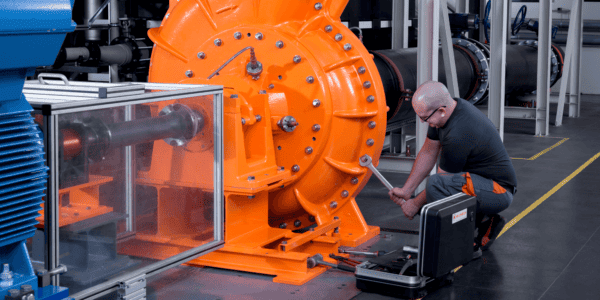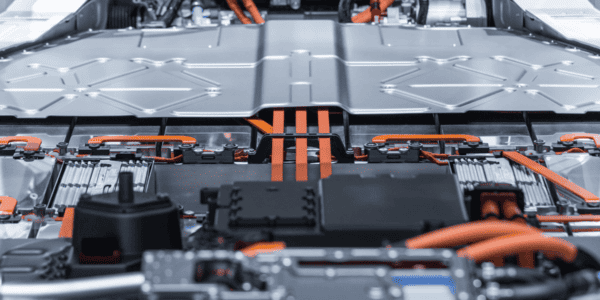
By 2030, every second company wants to be climate-neutral according to a result of the Staufen study “Green Transformation in Machine and Plant Engineering.” Dr. Björn Falk, industry manager, explains in a conversation with Staufen Principal Canan Jungel, whether this is a realistic goal.
Development into a sustainable company is one thing, having the right strategy ready to go is another. This is what the study “Green Transformation in Machine and Plant Engineering” shows: Previously, only one-third of companies in Germany had a clear strategy for the green transformation. Are companies missing the necessary commitment?
Frequently, sustainability is the company’s responsibility
Dr. Björn Falk, who as industry manager at Staufen AG has managed the survey of more than 150 companies in German machine and plant engineering, is not surprised by the results of the study. For him, the green transformation is also a question of classification. It is precisely at medium-sized machine and plant engineering companies that many goals are less anchored in strategy and more in corporate culture. Thus, the goal of sustainability is part of the responsibility that an entrepreneur bears.
Companies must create transparency
But even if companies do not speak expressly about sustainability, in the current crisis, this has been driven by the topics of energy and material. “The question is whether the current measures can be filed under sustainability or whether at the moment the concern is sooner dealing with the cost pressure that is exerting a significant influence on companies due to increased energy prices,” says Falk. To reduce cost pressure, first of all it is important to create transparency. Many companies do not know: “How sustainably or energy efficiently, how resource efficiently am I working?”
For the necessary transparency, the CO2 emissions must be determined starting with the machines and systems, to the building and company cars, on through to the supply chain. Björn Falk: “Of course this also includes the whole topic of energy efficiency. How much energy am I consuming? How high are the emissions? How are these costs changing? From which sources am I drawing this energy?” According to the view of this mechanical engineering expert, material and recycling is the third important topic: “How high are the percentages of recycled materials that I can use and reuse? Of what I already have and what I use, how can I incorporate something more into the value chain? These are all examples that play a role.”

Green transformation thanks to more pressure on the supply chain
With the topics energy and material, companies have a big lever for advancing the green transformation in the supply chain. For as the Staufenstudy shows, only one mechanical engineering company out of four selects its suppliers according to ecological criteria. Björn Falk: “Companies that are already well-established in this regard will come through the current energy crisis a little better.”
New business models for the green transformation?
Whether mechanical engineering companies must set themselves up anew for the complete green transformation and change their business model is something thatCanan Jungel wants to know from his interlocutor. Björn Falk: “I believe that such possibilities to change the business model will certainly have a big influence. But I do not believe that this is the only way.” Via the topics of efficiency and waste reduction, there are enough opportunities to do justice to the topic of sustainability. Companies must always decide in the situation in which they find themselves what offers the greatest potential.
And the goal that by 2030 every other company in mechanical engineering would like to be climate-neutral? Björn Falk: “I would call that sport.” At the moment, with delivery bottlenecks, material shortages, and the lack of personnel, there are urgent topics that companies must focus on and that push the topic of sustainability further in the background, says this mechanical engineering expert. However, from his point of view, the goal has not been abandoned entirely: “If I meet energy crises and material crises head-on, become more local, for example in my supply chains, I will indeed develop into a sustainable company. And that’s why I believe that it’s possible that by 2030 to 2035 many companies will achieve this sustainable or climate-neutral goal.“






